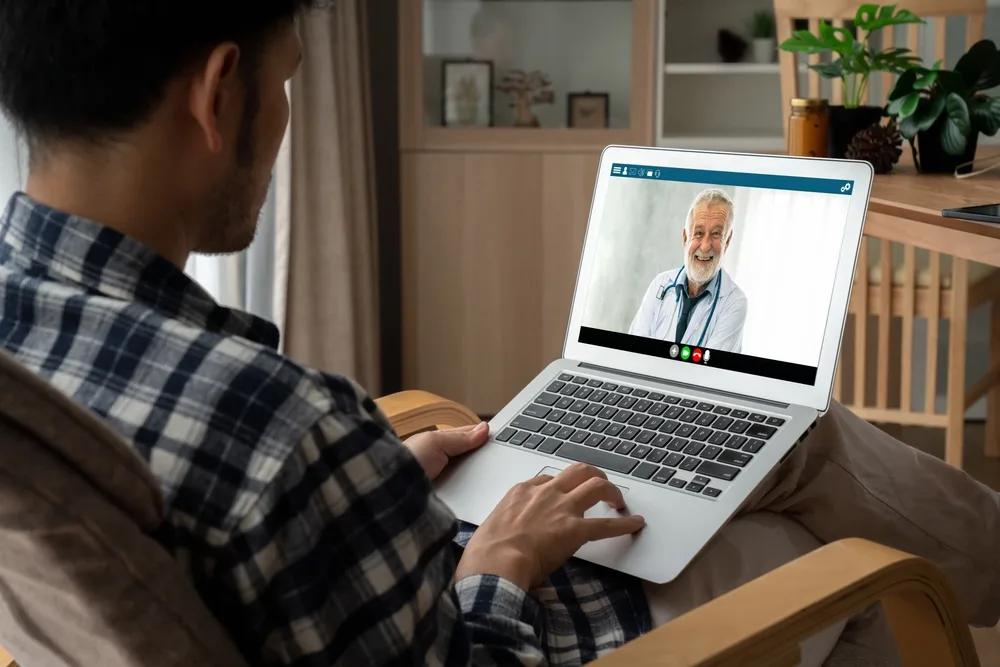Pink eye or conjunctivitis is a very uncomfortable yet common issue. Pink eye is inflammation of parts of the eye and eyelid. It is highly contagious and spreads quickly in daycares and schools. Thankfully it is not a serious condition and can be treated quickly with the proper medication.
The hallmark of conjunctivitis is redness around the white parts of your eyes, which is why it gets the name pink eye. Other symptoms include itchiness in the eyes, a feeling of objects in the eye, or a grittiness, discharge from the eyes that make it difficult to open in the morning, and tearing. While these symptoms are uncomfortable, they will not affect your vision. You should go to urgent care or the emergency room if you have a visual impairment.
Pink eye is highly contagious so if you experience any of these symptoms, immediately wash your hands and take steps to prevent this from spreading to your environment or those around you. If you wear contact lenses, you should remove them as soon as possible. An online doctor consultation can immediately diagnose your symptoms and inform you if you have conjunctivitis.
Most cases of pink eye are the result of a virus, but they can also be caused by bacteria, allergies, a foreign object in the eye, or a chemical splash. Your chances of contracting conjunctivitis increase drastically when you are exposed to someone infected with the viral or bacterial form of pink eye. Pink eye is commonly spread in schools and daycares the same way common colds and germs spread.
Our eyes are a very sensitive part of the body, and it is vital to take all precautions necessary to prevent any infection or contamination of them. You should never touch your eyes with your hands, if you do have to remove contacts, wash your hands thoroughly to prevent any contamination. Pillowcases and washcloths should be changes often and you should never share eye cosmetics or personal eye-care items. Any cosmetics that come near your eyes like mascara, eyeliner, or eyeshadow should be thrown away before their expiration dates.
Use these steps to help prevent pink eye:

If you think you have an eye infection, book an online doctor immediately. When you do, your virtual visit will include several questions from your telehealth provider.
Our online doctor will talk to you via video consultation, allowing them to see your eyes. Typically, your virtual visit will give your doctor the ability to determine if you have any of the visible signs of conjunctivitis (pink eye). If your symptoms and the visuals they can see align with what is commonly associated with pink eye, your doctor can then offer the best treatment option available to you.
Your virtual visit is a very effective way of getting help for this condition. Your doctor may ask you to move around a bit or shine a light into your eye to get the best visual possible.
Yes, pink eye can be very contagious, which means you can pass this condition on from one person to the next very easily. The best way to reduce the risk of spreading it is to schedule an appointment or virtual visit with a doctor and get treatment as soon as possible. Then, make sure you use that treatment and wash your hands anytime you touch your eyes.
Typically, pink eye will remain contagious for 24 to 48 hours after you start a prescription treatment. Follow your doctor’s directions for how long you should stay away from others to prevent the spread of this condition.
Know when you can return to your daily life and activities by talking to your doctor. Most of the time, you should not engage with others until you do not have any symptoms of the condition. That includes:
If your pink eye is brought on by allergies, it is not contagious. However, it’s still good to stay home and give your eyes time to heal.
Treatment for pink eye is dependent on the condition. Since it can be brought on by bacteria, a virus, or an allergen, the best treatment for you will vary.
Some types of pink eye may require additional treatment. If your eye infection is caused by a virus such as the herpes simplex virus, varicella-zoster virus (often called chickenpox or shingles), or a sexually transmitted infection, you may need additional treatment. Be sure to let your online doctor know about your diagnosis during your virtual visit.
With any of our services, including online UTI treatment and ear infection online treatment, the strategy used in your situation is always dependent on your symptoms and the cause of your eye infection.
When you meet with our online doctor for treatment of your eye infection, we will gather information about your condition and the symptoms you have. Then, based on what we learned during the consultation, we may recommend a prescription to target the type of bacteria present or eye drops to provide treatment.
Some of the most common prescriptions for this type of eye infection include:

When you meet with your online doctor to discuss your eye infection, we will determine which prescription is best for your situation. Past prescription use, the underlying bacteria present, and other health conditions you have could influence the type of medication prescribed to you.
Some cases of conjunctivitis can be treated at home and will go away after the course of a few days. Other cases require antibiotic eye drops. If you believe you have a pink eye, schedule a virtual doctor consultation with webdoctors.com. They will be able to diagnose your symptoms online and prescribe you the medication you need to recover quickly.